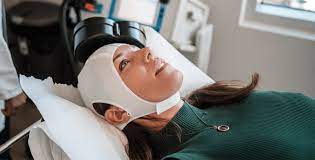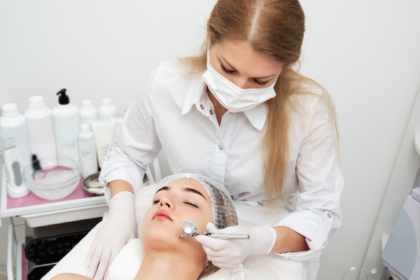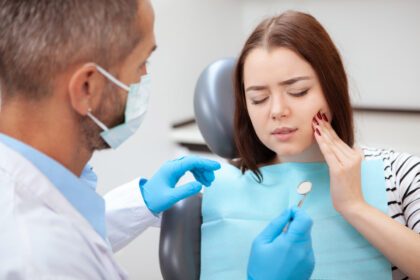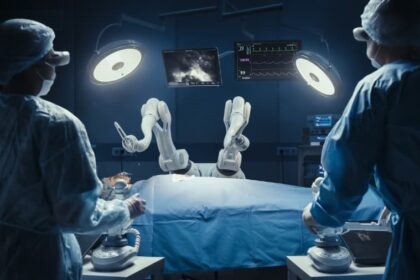Depression is one of the most common mental health challenges in the world today. For many, it’s more than just feeling sad — it’s a constant emotional weight that affects relationships, work, and daily life. While medication and therapy remain the most common treatments, not everyone responds well to antidepressants or wants to depend on them long-term. That’s where TMS therapy (Transcranial Magnetic Stimulation) comes in — a natural, non-invasive solution that offers hope to those battling clinical depression.
In this article, we’ll explore how TMS therapy works, why it’s considered one of the safest alternatives to traditional treatments, and how clinics like Concierge TMS are helping people regain control of their mental health.
Understanding Clinical Depression
Clinical depression, also known as major depressive disorder (MDD), goes far beyond temporary sadness. It’s a serious mental health condition that interferes with a person’s ability to think, feel, and function.
Common symptoms of depression include:
- Persistent sadness or hopelessness
- Loss of interest in activities once enjoyed
- Fatigue and low energy
- Difficulty concentrating
- Sleep problems (too much or too little)
- Changes in appetite or weight
- Feelings of guilt or worthlessness
- Thoughts of self-harm or suicide
Traditional treatments often involve antidepressant medications, psychotherapy, or a combination of both. However, studies show that about 30–40% of patients don’t respond adequately to medications alone. That’s where TMS therapy provides a new path forward.
What Is TMS Therapy?
Transcranial Magnetic Stimulation (TMS) is a non-invasive, FDA-approved treatment that uses magnetic pulses to stimulate specific areas of the brain responsible for mood regulation. Unlike medications, which affect the entire body, TMS targets only the regions linked to depression — particularly the left prefrontal cortex, an area often underactive in people with MDD.
During a TMS session, an electromagnetic coil is placed on the patient’s scalp. The coil sends gentle magnetic pulses that activate nerve cells and improve brain function over time.
TMS therapy:
- Does not require anesthesia
- Does not involve surgery
- Has minimal side effects
- Allows patients to return to normal activities immediately
How TMS Treats Clinical Depression Naturally
The science behind TMS is simple yet powerful. Depression is often linked to reduced brain activity in mood-related areas. TMS reawakens those neural pathways — helping restore balance naturally without chemicals or invasive procedures.
Here’s how it works:
- Targeted Brain Stimulation
The magnetic pulses stimulate neurons that are underactive, improving communication between different parts of the brain. - Gradual Improvement
Over several weeks of treatment, patients experience improved mood, higher energy levels, and better concentration. - Long-Lasting Results
Many patients report lasting relief, even months after completing a TMS therapy cycle. Some may choose maintenance sessions for ongoing support. - No Medication Dependency
Since TMS doesn’t rely on drugs, it eliminates concerns about side effects or dependency issues often linked to antidepressants.
Who Can Benefit from TMS Therapy?
TMS therapy is an excellent option for people who:
- Have treatment-resistant depression (depression that hasn’t improved with medications)
- Prefer non-drug therapies
- Experience unpleasant side effects from antidepressants
- Want to combine TMS with counseling for better results
Patients who have not found success with medications often describe TMS as life-changing. It gives them renewed hope and energy to reconnect with their lives.
Benefits of TMS Therapy
1. Non-Invasive and Painless
TMS does not require surgery or injections. Most patients describe the sensation as a light tapping on the scalp.
2. Few to No Side Effects
Unlike medications, TMS doesn’t cause weight gain, sleep problems, or sexual side effects. The most common minor effect is mild scalp discomfort during treatment.
3. Safe and FDA-Approved
TMS has been cleared by the U.S. Food and Drug Administration (FDA) since 2008 for treating depression. It’s a scientifically proven and safe treatment option.
4. Effective for Treatment-Resistant Depression
Studies show that many patients who did not respond to medications experienced significant improvement after TMS sessions.
5. No Recovery Time Needed
You can drive yourself home or return to work immediately after a session — making TMS an easy fit for busy lifestyles.
TMS vs. Antidepressants: Which Is Better?
| Aspect | TMS Therapy | Antidepressants |
| Type of Treatment | Non-invasive brain stimulation | Chemical medication |
| Side Effects | Minimal | Weight gain, fatigue, sexual dysfunction |
| Addiction Risk | None | Possible dependency |
| Effectiveness | High for treatment-resistant depression | Varies by individual |
| Duration of Results | Long-lasting | May require continuous medication |
For many, TMS becomes the preferred natural alternative — offering relief without the chemical side effects of traditional antidepressants.
The Role of Counseling in Depression Recovery
While TMS treats the biological aspect of depression, counseling focuses on the emotional and psychological aspects. When combined, the two therapies create a powerful recovery plan.
Through counseling, individuals learn to:
- Manage negative thought patterns
- Build resilience and coping strategies
- Develop healthier lifestyle habits
- Strengthen personal relationships
As highlighted by Concierge TMS, blending TMS therapy with counseling leads to more comprehensive and lasting results. Together, they target both the brain and the mind — ensuring full-spectrum healing.
What to Expect During a TMS Session
If you’re considering TMS, here’s what a typical session looks like:
- Consultation & Assessment
A mental health professional reviews your medical history and symptoms to confirm eligibility for TMS. - Mapping the Brain
The treatment team identifies the precise area of the brain to target for optimal results. - Stimulation Process
The electromagnetic coil is gently placed on your head to deliver short pulses. Each session typically lasts 20–40 minutes. - Regular Sessions
Most treatment plans include five sessions per week for 4–6 weeks. - Progress Tracking
Your doctor will monitor your mood and behavior improvements over time.
Combining Lifestyle Changes with TMS
TMS works best when paired with healthy habits and supportive care. Here are a few things patients can do to enhance their results:
- Exercise regularly – Boosts serotonin and dopamine naturally.
- Eat a balanced diet – Supports brain and body function.
- Practice mindfulness – Meditation and breathing reduce stress.
- Sleep well – Rest restores energy and mental clarity.
- Stay socially active – Connection reduces isolation and improves emotional health.
These small but powerful lifestyle changes make TMS therapy even more effective in long-term depression recovery.
Why Choose Concierge TMS
Concierge TMS is a trusted mental health center based in Massachusetts, offering advanced and compassionate care for patients dealing with clinical depression. Their approach combines science-backed TMS therapy with supportive counseling, ensuring every patient receives personalized treatment.
Here’s why patients trust Concierge TMS:
- Expert clinicians with years of experience in mental health
- Patient-centered care that focuses on comfort and results
- State-of-the-art TMS equipment for accurate, effective treatment
- Integrated counseling support for a complete recovery experience
- Flexible scheduling to fit treatment into your lifestyle
They believe that everyone deserves a chance to live free from the weight of depression — and they make that goal achievable through compassionate, effective care.
Is TMS Right for You?
If you’ve tried multiple antidepressants without success or struggle with side effects, TMS may be the solution you’ve been searching for. It’s non-invasive, drug-free, and offers real, lasting relief from depression.
Talk to your healthcare provider or reach out to a professional TMS clinic to discuss your options. Clinics like Concierge TMS can help assess whether you’re a good candidate for treatment and guide you every step of the way.
Final Thoughts
Depression doesn’t have to define your life. With modern treatments like TMS therapy, people now have access to natural, science-backed solutions that restore balance, peace, and happiness.
If you’re struggling with clinical depression, remember that help is available — and it doesn’t always come in the form of medication. With TMS therapy and supportive counseling, recovery is not just possible — it’s within reach.









